Speakers
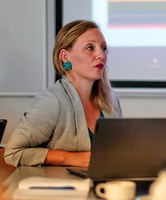
Nina Amelung
Sociologist, Institute of Social Sciences, University of Lisbon
Nina Amelung, sociologist and research fellow at the Institute of Social Science, Universidade de Lisboa. Nina's research interests lie at the intersection of Sociology, Science and Technology Studies (STS) and Critical Migration and Security Studies. In her current project titled “Affected (non)publics: Social and political implications of transnational biometric databases in migration and crime control (AFFECT)” Nina explores the social and political implications of growing database infrastructures – in particular their design, governance and implementation – on understanding and regulating affected publics. Her project is funded by the Portuguese Fundação para a Ciência e a Tecnologia. She co-authored Modes of Bio-Bordering: The Hidden (Dis)integration of Europe (2021, Springer) and co-edited Material Politics of Citizenship: Connecting Migrations With Science and Technology Studies (2021, Routledge).
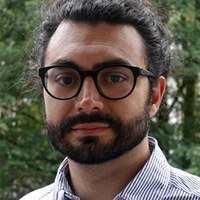
Rocco Bellanova
Research Professor at the Vrije Universiteit Brussel
Rocco Bellanova is a Research Professor at the Vrije Universiteit Brussel (interdisciplinary research group Law, Science, Technology & Society-LSTS). He is the PI of the ERC Starting Grant project DATAUNION - The European Data Union: European Security Integration through Database Interoperability. He is a co-editor of Big Data & Society and a member of the Editorial Board of Tecnoscienza-Italian Journal of Science & Technology Studies. His work sits at the intersection of politics, law, and science and technology studies. He studies how digital data become pivotal elements in the governing of societies. His research focuses on European security practices and the role of data protection therein.
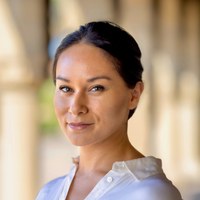
Nina Dewi Toft Djanegara
Associate Director, Technology & Racial Equity Initiative Center for Comparative Studies in Race & Ethnicity, Stanford University
Nina Dewi Toft Djanegara is the Associate Director of CCSRE's Technology and Racial Equity Initiative where she oversees the Initiative's practitioner fellows program, graduate and undergraduate fellowships, and strategic development. Previously, Nina was a Program Assistant and Graduate Fellow with the Technology and Racial Equity Initiative.
A doctoral student in the Stanford Anthropology Department, her research uses ethnographic and archival methods to investigate how technology is applied in political contexts. In particular, her dissertation investigates how biometric technologies – such as fingerprinting and facial recognition – are applied to border enforcement in the United States. Nina holds an MSc in Environmental Science from Yale University and a BA in International Development Studies from the University of California, Berkeley.

Huub Dijstelbloem
Professor of Philosophy of Science, Technology and Politics, University of Amsterdam
Huub Dijstelbloem is Professor of Philosophy of Science, Technology and Politics and Scientific Director of the Institute for Advanced Study of the University of Amsterdam. He is co-founder of the Platform for the Ethics and Politics of Technology and one of the initiators of the movement Science in Transition.
Building bridges between science, research, society and policy-making, and methodological and conceptual innovation is central to his work. He was a member of the KNAW advisory committees on roots and prevention of inappropriate behavior in academia (present) and on the Netherlands Code of Conduct for Research Integrity (2015-2016) and served twice as ad interim Chair of the Department of Philosophy.
Previously, he was affiliated with the Netherlands Scientific Council for Government Policy (WRR) and the Rathenau Institute. At the WRR, he worked on food policy, international security, European cooperation, climate justice, and long-term climate policy. At the Rathenau Institute, he advised the government and stimulated public debate on emerging technologies, privacy and information technologies, and biomedical developments.
His work has been published in Nature, Security Dialogue, Geopolitics, the Journal of Borderlands Studies, International Political Sociology, Sociology of Health and Illness and the Journal of Environmental Policy & Planning. His most recent book is Borders as Infrastructure: The Technopolitics of Border Control (MIT Press, 2021).
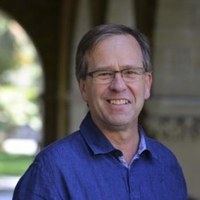
Paul N. Edwards
Director of the Program on Science, Technology & Society, Stanford
Paul N. Edwards is Director of the Program on Science, Technology & Society (STS) and a William J. Perry Fellow in International Security at the Center for International Security and Cooperation at Stanford. He also co-directs the Stanford Existential Risks Initiative with Prof. Steve Luby. [continue to read at the Stanford University webpage]

Bernd Kasparek
Researcher at the Department of European Ethnology, Humboldt-Universität zu Berlin
Bernd Kasparek is a post-doctoral researcher at the Institute for European Ethnology and the Berlin Institute for Empirical Migration Research, both at Humboldt-University Berlin. His research interests are border and migration regimes and Europeanisation. His monograph “Europa als Grenze. Eine Ethnographie der Grenschutz-Agentur Frontex” [Europe as Border. An Ethnography of the Border Agency Frontex] was published in 2021 by transcript publishing company.
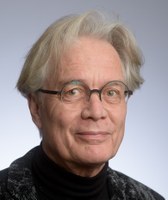
Stefan Kuhlmann
Professor of Science, Technology and Society, University of Twente
Stefan Kuhlmann is emeritus professor of Science, Technology and Society (STS) at the University of Twente (Netherlands). He works on research and technological innovation as social and political processes, focusing on governance and politics, and he publishes widely in the field of research and innovation policy studies.
Prior he was professor of Innovation Policy at University of Utrecht (Netherlands, 2001-2006), held leading positions at the Fraunhofer Institute for Systems and Innovation Research (Germany 1988-2006), and was researcher at the University of Kassel (Germany, 1979-1988). [continue to read at University of Twente webpage]
Follow on Mastodon: @s_kuhlmann@mastodon.social

Matthias Leese
Professor, Department of Humanities, Social and Political Sciences, ETH Zurich
Matthias Leese is Assistant Professor for Technology and Governance at the Department of Humanities, Social and Political Sciences, ETH Zurich. His research is interested in the effects of digital technologies on social order. It pays specific attention to security organizations and their rationales and practices that are co-constituted between the technological and the social.

Chiara Loschi
Postdoctoral Researcher at Processing Citizenship, Department of Philosophy and Communication Studies, University of Bologna
Chiara Loschi is currently postdoctoral fellow in the ERC Processing Citizenship project team, at the Department of Philosophy and Communication, University of Bologna.
From 2018 to 2020 she held a position as postdoctoral researcher at the University of Vienna, Institut Für Politikwissenschaft, in the frame of an FWF-funded project led by Dr. Peter Slominski, “The EU Border Protection Regime: The Cooperation between EU Agencies and its Consequences for Fundamental Rights”. From 2017 to 2018, she was based in Tunis as CNRS postdoc researcher in the frame of an EU HORIZON2020 project, “EUNPACK. Good intention mixed results” (grant N. 693337), on EU crisis response in Libya. She holds a MA in Cultural anthropology with a thesis focusing on the memory of colonial occupation in Libya and the dynamics of former settlers’ mobilizations in modern Italy. She has been based in Tunisia for several years between 2013 and 2018, and she has conducted fieldwork in Tripoli and west Libya in 2010.
Her research lies at the intersection of political science and sociology, science and technology studies, EU studies, with an ethnographic approach, with a focus on governance by and of data infrastructures, and how they impact national and supranational institutions.

Noortje Marres
Professor at the Centre for Interdisciplinary Methodologies, University of Warwick
Noortje Marres is Professor at the Centre for Interdisciplinary Methodologies, University of Warwick. Her work contributes to the interdisciplinary field of Science, Technology and Society (STS) and investigates issues at the intersection of innovation, publics, the environment and everyday life. [continue to read at the University of Warwick webpage]

Silvia Masiero
Associate Professor, Department of Informatics, University of Oslo
Silvia Masiero is an Associate Professor of Information Systems at the University of Oslo. She has authored over 30 peer-reviewed works in the domain of Information and Communication Technology for Development (ICT4D), and has a long-standing interest in the role of digital platforms in socio-economic development processes. She is Secretary of the IFIP Working Group 9.4 on the Implications of Information and Digital Technologies for Development, a Senior Editor at the Electronic Journal of Information Systems in Developing Countries, and an Associate Editor at Information Technology for Development.
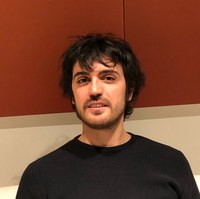
Lorenzo Olivieri
Doctoral Candidate, University of Bologna
Lorenzo Olivieri joined the Processing Citizenship project in 2019 as a PhD candidate. The goal of his research is to enquire what are the modalities of resistance exerted by migrants in their encounters with information technologies for migration management. More specifically, he focuses on the friction between border-crossers’ temporalities of resistance and the temporalities of control and discipline embedded into the European migration management. To enquire these issues, Lorenzo relies on narrative interviews with asylum seekers, lawyers and cultural mediators. In addition to this, he has attempted to develop a ‘serious game’ which problematizes some of the power relations and knowledge asymmetries that characterize migration management.
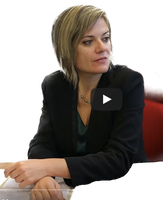
Annalisa Pelizza
PI of Processing Citizenship, Professor of Science and Technology Studies, University of Bologna
Annalisa Pelizza is Professor of Science and Technology Studies and Principle Investigator of Processing Citizenship. Before joining Bologna, she was Associate Professor at the Science, Technology and Policy Studies department, University of Twente, where she is now Visiting Professor.
Her interests are:
- Sociotechnical aspects of data infrastructures, including ontologies and interoperability
- Ethnographic, digital and mixed methods
- Governance of and by technology
- Data infrastructures, populations, institutions
- Network cultures
She has been the recipient of international and European Commission excellence science grants and currently leads the Processing Citizenship research group, funded by the European Research Council.
Pelizza was elected member of the EASST Council 2019-2022), is member of the Editorial Board of Science, Technology and Human Values and vicepresident of STS Italia. She acts as reviewer for several science agencies and international journals in the STS, policy, communication, data science and information systems fields. She held visiting fellowships in U.S., Germany, France and the Netherlands.

Mariia Shaidrova
Doctoral Researcher, Tilburg University
Maria Shaidrova is chairing the Opora Foundation in Amsterdam and is a Research Talent Grant recipient of the Dutch Organisation for Scientific Research (NWO), finishing her Ph.D. on migration from Nigeria to the European Union at the University of Tilburg. OPORA Foundation is a collective of high-skilled professionals (academics, lawyers, and consultants) which conducts research on displacement from Ukraine and advises the national government on operations based on the collected signals and data. OPORA conducted legal and policy analysis of the EU Temporary Directive, the national (Dutch) housing policies, labor market integration, and the mental health of displaced people.
Her areas of expertise are high-risk migration, ethnicity construction, representation and victimization of migrants, public administration, and trafficking in human beings. Maria has a background in social policy (Kyiv-Mohyla Academy, Ukraine, BA) and sociology of migration (University of Amsterdam, MS, Cum Laude, thesis focus: ethnic self-identification of internally displaced people in Ukraine).
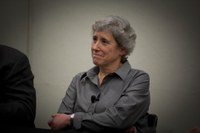
Lucy Suchman
Professor, Department of Sociology, Lancaster University
Lucy Suchman is Professor Emerita of the Anthropology of Science and Technology at Lancaster University in the UK. Before taking up that post she was a Principal Scientist at Xerox’s Palo Alto Research Center (PARC), where she spent twenty years as a researcher. Her current research extends her longstanding critical engagement with the fields of artificial intelligence and human-computer interaction to the domain of contemporary militarism. She is concerned with the consequences of algorithmic systems for social justice and the possibility for a less violent world. Lucy is the author of Human-Machine Reconfigurations (2007) and Plans and Situated Actions: the problem of human-machine communication (1987), both published by Cambridge University Press. She was a founding member of Computer Professionals for Social Responsibility and served on its Board of Directors from 1982-1990 and is a current member of the International Committee for Robot Arms Control (ICRAC). In 2002 she received the Benjamin Franklin Medal in Computer and Cognitive Sciences, in 2010 the ACM SIGCHI Lifetime Research Award, and in 2014 the Society for Social Studies of Science Bernal Prize for Contributions to the Field. She was President of the Society for Social Studies of Science (4S) 2016-17.

Paul Trauttmansdorff
Postdoctoral Researcher at Processing Citizenship, Department of Philosophy and Communication Studies, University of Bologna
Paul Trauttmansdorff is a postdoctoral fellow in the Processing Citizenship project team, at the Department of Philosophy and Communication Studies, University of Bologna. Paul completed his PhD in Science & Technology Studies at the University of Vienna. His work has investigated the construction and maintenance of databases in the EU border regime. In his research, he is interested in the contestations and controversies around techno-scientific innovation, the development of infrastructure, and the transformations of border and migration regimes. He is intrigued by questions about the social, political, and ethical implications of sociotechnical transformations and the infrastructures that undergird and sustain them.
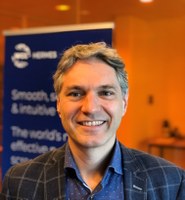
Roelof Troost
Chief Operating Officer, WCC
Roelof Troost is Chief Operating Officer at WCC. WCC is a commercial organization that has over 25 years of experience in delivering advanced Identity Management and identification software solutions to governments. Roelof has been a part of WCC for the last 15 years and as such has managed or supervised many large software implementations for government and non-governmental agencies. Some examples of these projects: the implementation of a biometric refugee registration system for the UNHCR, a biographic matching engine for the centralized European visa application registration system (EU-VIS) and more recently the implementation of two nationwide Civil Registration and Vital Statistics systems.

Aristotle Tympas
Professor of History and Philosophy of Science, School of Science, National and Kapodistrian University of Athens
Aristotle Tympas (PhD in History and Sociology of Technology, Georgia Tech, 2021), works as professor at the Department of History and Philosophy of Science, National and Kapodistrian University of Athens. He specializes in the historical/STS study of artificial intelligence and renewable energy. Books: Aristotle Tympas, Calculation and Computation in the Pre-electronic Era: The Mechanical and Electrical Ages, Springer, 2017; Τέλης Τύμπας, Αναλογική Εργασία, Ψηφιακό Κεφάλαιο: Ιστορία των Τεχνολογιών Υπολογισμού και Αυτοματισμού στην Ενέργεια και την Επικοινωνία, Angelus Novus, 2018. Recent publications on the history/historiography of artificial intelligence: Manolis Simos, Konstantinos Konstantis, Konstantinos Sakalis and Aristotle Tympas, “‘AI Can Be Analogous to Steam Power’ or from the ‘Postindustrial Society’ to the ‘Fourth Industrial Revolution’: An Intellectual History of Artificial Intelligence”, ICON: Journal of the International Committee of the History of Technology, no 1 (2022), 97-116; Aristotle Tympas, “From the Display of a Digital-Masculine Machine to the Concealed Analog-Feminine Labour: The Passage from the History of Technology to Labour and Gender History”, Historein, 19.1, 2020.
More info at: http://scholar.uoa.gr/tympas
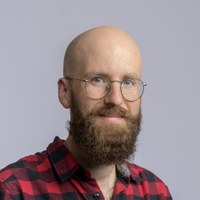
Wouter Van Rossem
PhD Candidate at the University of Twente.
Wouter Van Rossem is a PhD researcher at The University of Twente (The Netherlands) and currently a visiting researcher at the University of Bologna (Italy) as part of European Research Council funded “Processing Citizenship”. He researches how people’s identity data are matched and linked in transnational security infrastructures. First, drawing from his background in computer science, he developed a method and tool to analyse data models underpinning data infrastructures for population management. Second, he conducted a fieldwork that probed into the complex histories and transnational aspects of developing software technologies for matching identity data.
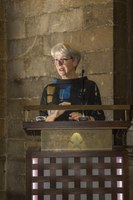
Sally Wyatt
Professor at the Department of Technology and Society Studies, Maastricht University
Sally Wyatt is professor of digital cultures in the Maastricht University Science, Technology and Society Studies (MUSTS) research group in the Netherlands. For many years, she has been studying some of the societal aspects of developing and using digital technologies in healthcare and in the production of knowledge.
Follow on Mastodon: @SallyWyatt@Mastodon.Social